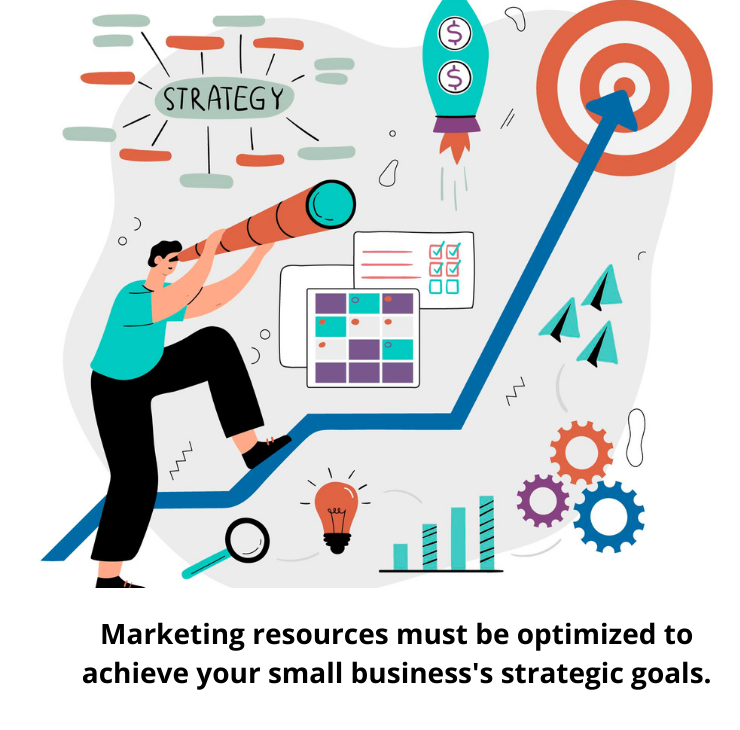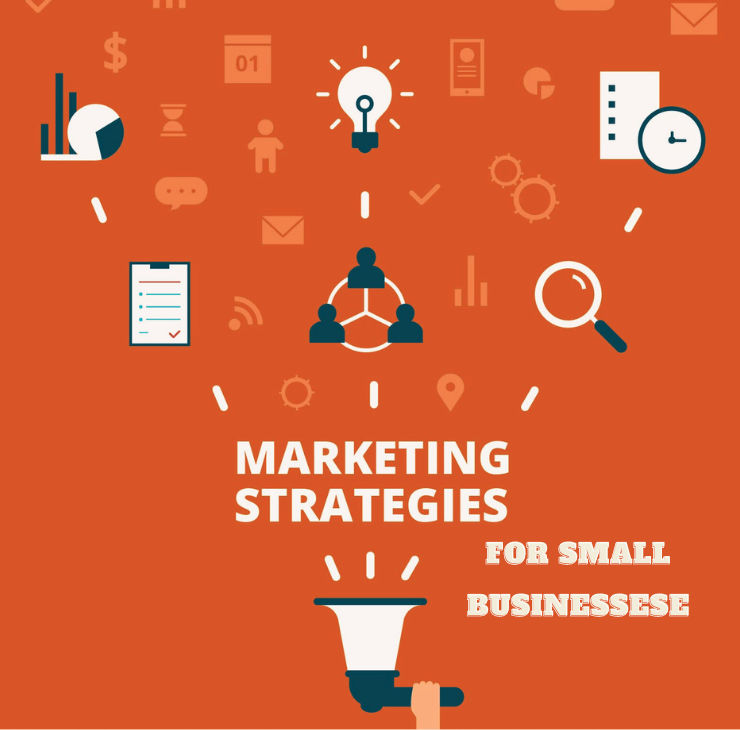In today’s competitive business landscape, strategic marketing for small businesses plays a critical role in business success. Through effective marketing strategies, small businesses can stand out, attract their target audience and achieve sustainable growth. This comprehensive guide will walk you through the essential steps and considerations for implementing strategic marketing for small businesses with an approach tailored to the unique needs of businesses.
Understanding Your Business and Reaching Customers
Gain insights about your business and connect with your target audience by understanding their needs and preferences, here’s an explanation:
Define What Makes Your Business Stand Out
The first essential step in strategic small business marketing is to determine what uniquely sets your business apart from others offering similar products or services. You will need to crystalize the value you offer to customers or how you will meet their needs in a special way. This unique selling point, or USP for short, should be at the heart of all your marketing messages. Whether it’s exceptional service, innovative ideas, or a specialized approach, focus on clearly communicating your core strength.
“Also Read: Types of Businesses: 5 things to choose the best type for you”
Identify Your Target Audience

Gaining a solid understanding of who your ideal customers are is extremely important for strategic marketing for small businesses. Take time to research your market and find out specific details about your customers – things like common demographics such as age, interests, locations and also behavioral traits. Pay attention to what matters most to your target group and any challenges they face. Through research, you can craft your marketing communications specifically for these people and address what attracts them most.
Define clear goals for strategic marketing for small businesses
Set specific, measurable goals to guide your marketing efforts, ensuring focus and effectiveness in reaching your target audience, through the following:
Define Goals that are Specific and Measurable
A good first step is setting goals that are focused and easy to track results for. Instead of something vague like “increase sales,” give specifics like “gain 15% more online sales in the next 6 months through email campaigns and website optimization.” Goals like this that mention numbers, timing and strategies are best.
Keep Business Aims in Mind
Your marketing targets should line up well with the wider goals for your business. By connecting the two, you can be certain marketing efforts clearly support your company’s growth plans. As an example, if your business want to expand into a new area, a related marketing goal could be boosting brand recognition and attracting more customers within that specific market segment.
Competition analysis is an important step in strategic marketing for small businesses
Analyzing competition is essential for small businesses to thrive strategically, gaining insights and finding opportunities in the market.
Identify Direct and Indirect Rivals
Take time to recognize companies most similar to yours that offer comparable goods and services – these are direct competitors. Also note any businesses addressing adjacent needs – indirect rivals. Learning about these allows insightful perspective into the current market situation.
Review Others’ Tactics and Offers
Take a look at how competitors promote themselves, price items, interact with clients, and more. Be on the lookout for opportunities to distinguish your venture or gaps others haven’t tapped. Studying rivals helps sharpen your own marketing strategies.
Highlight Where You Have an Edge
With research complete, pinpoint strengths that differentiate your company, like higher quality produce, more personable service levels or a smoother user experience. Feature these advantages prominently in promotions used in strategic marketing for small businesses to attract customers looking for what you have to offer.
Developing a Targeted Marketing Strategy
Craft a focused marketing strategymarketing strategy to effectively reach your target audience, creating a strong impact and driving business growth.
Choose Channels That Reach Your Audience
Formulate a focused marketing strategy to effectively reach your target audience, this makes strategic marketing for small businesses grow faster. In the following points we will explain how to do this:
Establish a Clear Identity
Developing a consistent brand ‘voice’ and visual style is key. Define core messages, values and design aspects that represent you. Make sure the tone, messaging and look represent you uniformly on all platforms to establish recognizability and reliability over time.
Orchestrate an integrated plan for strategic marketing for small businesses
Bring marketing efforts together by mapping out strategies, tactics and schedules. Connect differing actions like social posts, email promotions and partnerships to provide a seamless experience for customers wherever they encounter your brand. With an integrated plan, you can amplify impact.
Implementing Effective Marketing Strategies
Implementing impactful marketing strategies is crucial for small businesses to attract and engage their target audience effectively.
A. Content Creation and Storytelling
Develop engaging and useful materials like blog posts, videos and social posts. Provide value to your audience while highlighting what you offer through compelling narratives and case studies. Regular updates establish you as an expert.
B. Leveraging Social Networks
Capitalize on popular platforms where your ideal clients spend time to build awareness, spark conversations and drive traffic. Tailor your approach to best suit each network. Additionally, monitor interactions and run targeted ads.
C. Search Engine Optimization
Optimize your website and articles to improve search rankings organically. Research relevant keywords and naturally incorporate them. Focus on speed, quality links and helpful info to enhance visibility.
D. Strategic marketing for small businesses via email
Build relationships through personalized, relevant email campaigns. Segment lists based on traits. Automate helpful reminders, exclusive deals and more to nurture contacts. Monitor effectiveness.
E. Strategic Partnerships
Collaborate with complementary brands and influencers to mutually tap new audiences. Identify those aligned with your values who resonate with your customers.
Measuring Performance and Driving Improvement
A. Setting Key Metrics
Define indicators like website traffic, purchase rates, reach, and other factors to quantify success. It is worth noting that setting goals to monitor progress and making data-based choices is an important factor for success in strategic marketing for small businesses
B. Learning from Data and Feedback
Use analytics and customer input to identify strengths, weaknesses and new opportunities. Over time, you can adjust promotional methods based on insights to enhance marketing value.
C. Continuous Optimization
Conduct a continuous cycle of regular review and improvement to advance your marketing and improve results quickly.
Managing Marketing’s Resources

Optimize your marketing resources efficiently to maximize their impact and achieve strategic goals for your small business.
A. Strategic Budget Allocation
Determine a sensible budget based on factors like size, goals and available means. Consider online and offline costs like tools, ads and content creation.
B. Maximizing Efficiency
As a smaller outfit, making the most of resources matters. Leverage low-cost channels like social media, articles and email. Also, explore affordable tools providing useful data without breaking the bank.
Common Questions
Here are some common questions and answers about small business marketing in a more casual tone:
1. How long until marketing works?
Results vary based on your field, customers and tactics. Social Media acts fast but SEO takes time. Be patient and tune efforts as you track progress.
2. Can small fries compete with Big Macs?
Totally! Strategic marketing lets little guys use their advantages like personalized service and expertise. Know your customers and tell your story – craft your space in the market.
3. How do you see if marketing did its job?
Check what really matters like website visitors, sales, engagement etc. Use your goals to review numbers and see how folks react. Tweak plans with what you learn.
4. Is lots of money needed to promote my biz?
While a big budget opens doors, smaller shops can still have impact with smart plans. Low-cost channels, free tools, and knowing your customers maximize returns on small scales too. It takes work but results come.
By taking the time to formulate strategic marketing for small businesses, businesses can definitely survive larger competitors! Additionally, following up with customers keeps a business successful in the long run.





